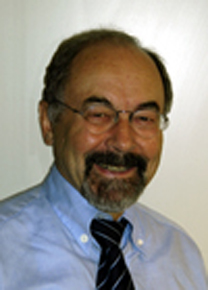Werner Reutter wins 2012 Rosalind Kornfeld AwardThe Society for Glycobiology is pleased to announce that the recipient of the 2012 Rosalind Kornfeld Award is jointly awarded to Werner Reutter. The Rosalind Kornfeld Award for Lifetime Achievement in Glycobiology was established in 2008 to honor the distinguished scientific career and service to the Society by Dr. Rosalind Kornfeld. The award is given by the Society to scientists who have, over their professional lifetimes, made significant contributions with important impact on the field.
Prof. Reutter is a pioneer in metabolic glycobiology and its impact on cell physiology and pathology. His early studies showed that feeding rats free galactosamine generated a condition resembling human viral hepatitis. A thousand publications world-wide have since exploited that finding. The liver damage results from decreased uridine nucleotides, impaired glycoprotein synthesis and reduced total protein synthesis. Later, a gut endotoxin co-factor was found, transforming galactosamine into a sensitive endotoxin test. Turning his attention to L-fucose, Prof. Reutter synthesized its amino analog L-fucosamine, which led to the development of new inhibitors of fucokinase. He performed the first measurements of GDP-L-fucose, showing that its level in liver and hepatomas was the lowest of all sugar nucleotides. Protein-bound L-fucose was ~4-fold higher in hepatoma than normal liver plasma membranes, and metabolic labeling and fucose half-life measurements revealed dynamically distinct glycoprotein sub-populations. Fucose metabolism was affected in Morris hepatomas leading to elevated fucoglycoprotein levels, and evidence for increased activities of specific fucosyltransferases in cancer patient sera nominated them as potential diagnostic markers. Prof. Reutter and colleagues subsequently showed that the nonphysiological sugar 2-deoxy-D-galactose was incorporated into rat liver, leading to reduced incorporation of L-fucose and impaired N-linked glycan antennae. Incorporation into gangliosides led to increased concentration of GM3. These findings correlate with short-term memory impairment of chickens injected intrathecally with 2-deoxy-D-galactose. Prof. Reutter's most recent recognition stems from his distinguished studies in sialoglycobiology. He first showed that the biosynthetic enzyme UDP-N-acetylglucosamine 2-epimerase (GNE) is down regulated along with reduced sialoglycoprotein secretion from hepatoma cells. Following enzyme purification and gene cloning, Prof. Reutter showed that GNE was a bifunctional enzyme with N-acetylmannosamine kinase activity making it the first known bifunctional enzyme for glycan metabolism. The molecular characterization of this unique enzyme provided the first biochemical hint for understanding the pathobiochemistry of Hereditary Inclusion Body Myopathy. His studies showed that GNE activity was increased by protein kinase C phosphorylation and that GNE undergoes novel regulatory oligomerization under the influence of its substrate and product. Generation of knock-out mice showed that GNE was required for early development. A series of intensive kinetic and structural studies have led to exquisite insights into its reaction mechanism and the development of potent inhibitors whose further development show promise for cancer treatment. ManNAc is the natural precursor of all ~50 known sialic acid derivatives, and Prof. Reutter and colleagues made the seminal discovery that N-acyl modified mannosamines (including N-cyclopropylcarbonyl-mannosamine) were efficiently metabolized to CMP-sialic acid and incorporated into sialylated glycoconjugates. In several "biochemical engineering" studies, Prof. Reutter and colleagues defined novel changes in the biological properties of many cell types. For example, uptake of viruses by lymphoma cells was dramatically inhibited by the unnatural sialic acids owing to structural changes. ManNProp stimulated the proliferation of astrocytes and microglia cells in vitro, regulated lineage progression of oligodendrocytes, and stimulated neurite outgrowth in PC12 cells. Selective effects of ManNProp indicated a role for GNE in regulating polysialylation of N-CAM and neural wiring. Treatment of human T-lymphocytes with ManNProp induced hallmarks of the activated state. Treatment of HL60-I cells (which lack GNE) with the natural ManNAc induced sialyl-LewisX structures and binding to E-selectin and, surprisingly, ManNProp dramatically amplified these effects. Prof. Reutter's original studies in this area helped launch the current interest in the use of unnatural sialic acid for biochemical engineering of cell surfaces, which now represents a central field of discovery in Glycobiology. His imaginative and seminal studies show outstanding and creative scholarship and his 300-plus publications testify to his collaborative spirit. He stands as an eminent example of the qualities expected for a recipient of the Rosalind Kornfeld Award for Lifetime Achievement in Glycobiology. |

 Dr. med. Werner Reutter
Dr. med. Werner Reutter